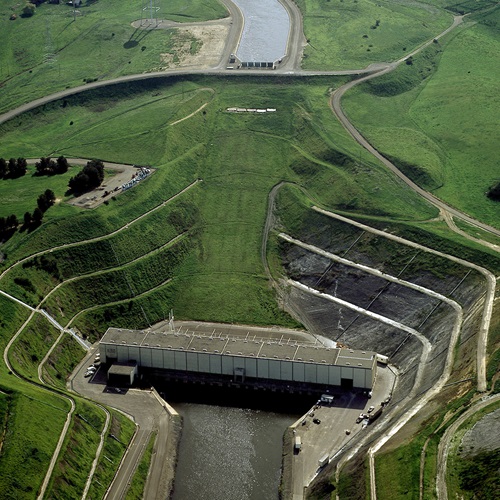
CALIFORNIA – Metropolitan Water District’s (MWD) Board of Directors voted, December 11, to provide additional funding – $142 million, for a water tunnel that they say could modernize statewide infrastructure.
Officially called the Delta Conveyance Project (DCP), the proposed $20 billion plan includes a single 45-mile-long underground tunnel designed to transport water from the Sacramento-San Joaquin Delta to Central and Southern California.
The 38-member MWD board approved to fund its share of environmental planning and pre-construction costs for the project in 2026 and 2027. The district provides water for 19 million people in Los Angeles, Orange, Riverside, San Bernardino, San Diego, and Ventura counties.
Lowers chance of supply disruptions from earthquakes
MWD says the project is an initiative to increase the long-term reliability of the State Water Project (SWP) which supplies the water district.
They say the water tunnel will make sure there’s a steady water supply by avoiding weak Delta levees. It will also lower the chance of supply disruptions from earthquakes.
The latest tunnel plan includes two new water intakes on the Sacramento River in the north Delta, the underground tunnel itself, and a pumping station to move water into the Bethany Reservoir, where the California Aqueduct begins.
SoCal ratepayers to fund the project
The DCP would be funded through state bonds repaid by Southern California ratepayers and other recipients of water from the SWP.
According to the California Water Impact Network (C-WIN), the $20 billion cost to construct the tunnel is a low figure.
“Typically, the State underestimates the cost of its public work projects, including roads, bridges, the high-speed rail project, and a 1990s extension of the SWP to the South Coast,” said C-WIN.
Water tunnel disproportionately benefits large corporate farms
C-WIN says similar to two previous efforts to build a new water tunnel system, the DCP has encountered broad opposition.
In addition to the cost, critics often say the DCP disproportionately benefits large corporate farms. These farms use 80% of all developed water in California and contribute only 2.5% to the state economy.
They say most of the nut crops are sold internationally and current production levels are not essential for food security.
“California can still supply fresh fruits and vegetables to the country, even with significant reductions in water use by agriculture” says C-WIN.
In addition, the financial burden of the DCP is spread across ratepayers, including urban households, however the primary economic gains are concentrated among a few large agricultural entities.
In addition, opponents argue that diverting water from the Delta could harm ecosystems and reduce freshwater availability for local species.
Future participation
MWD says a future decision would come before the Board in 2027 to determine whether Metropolitan will participate in the construction of the project.
RELATED: New recycled drinking water rules went into effect October 1 for California residents

